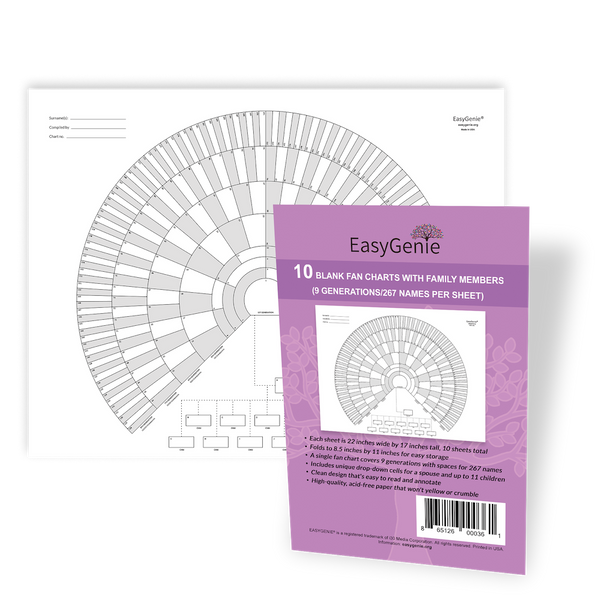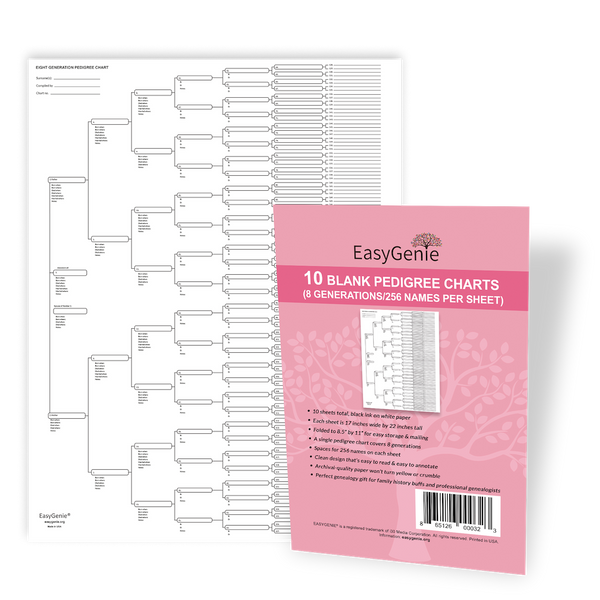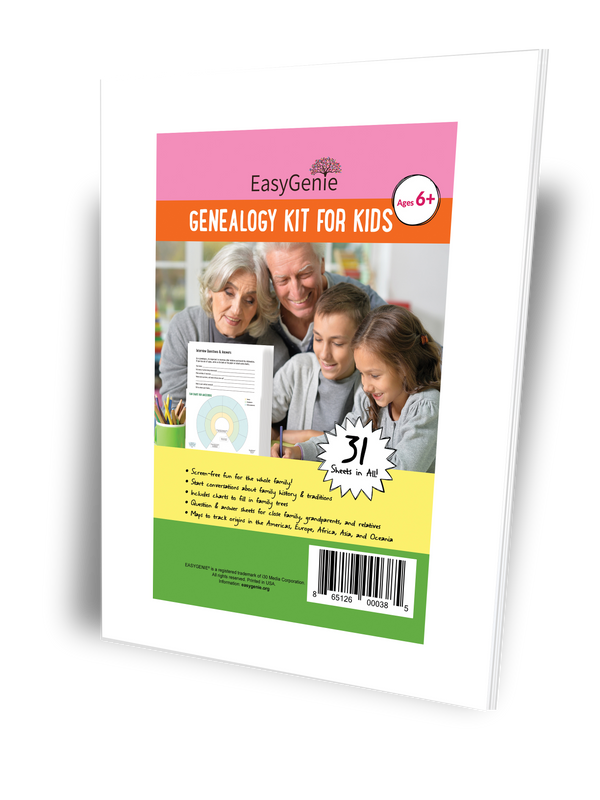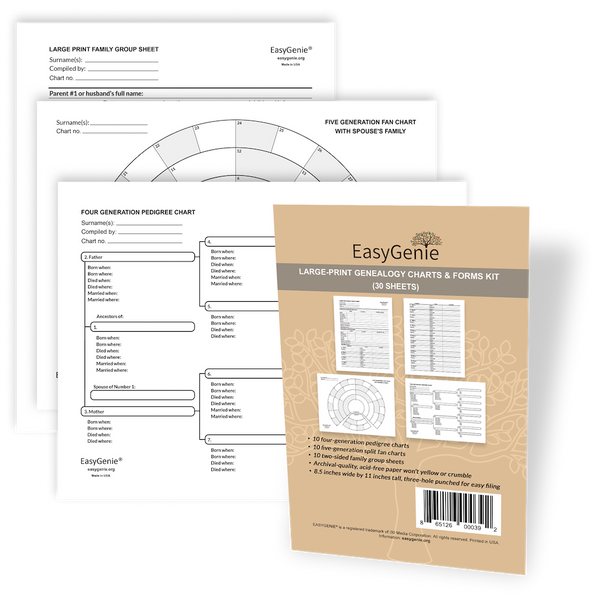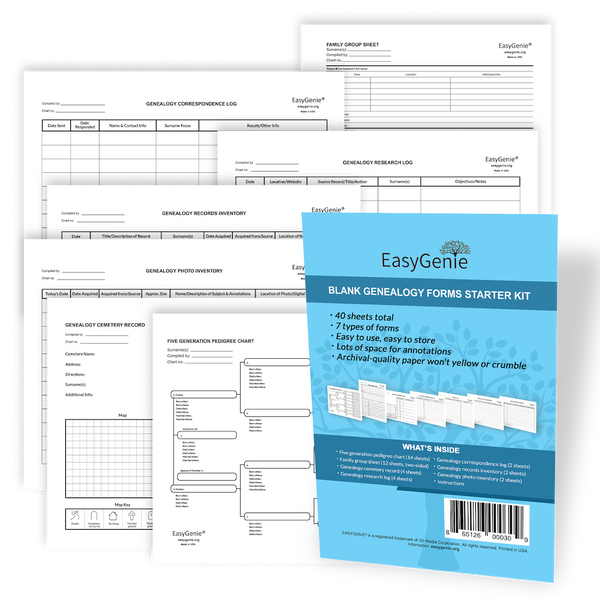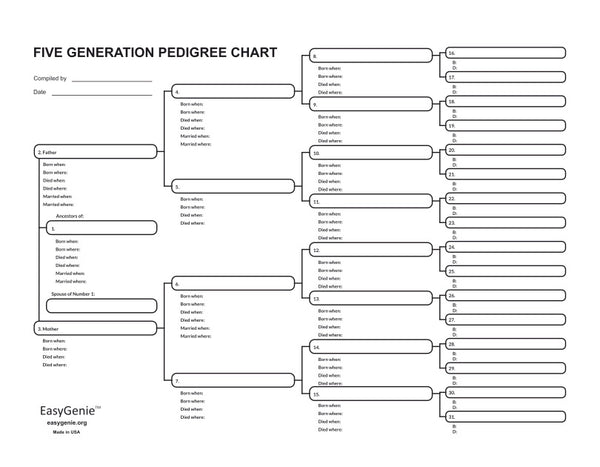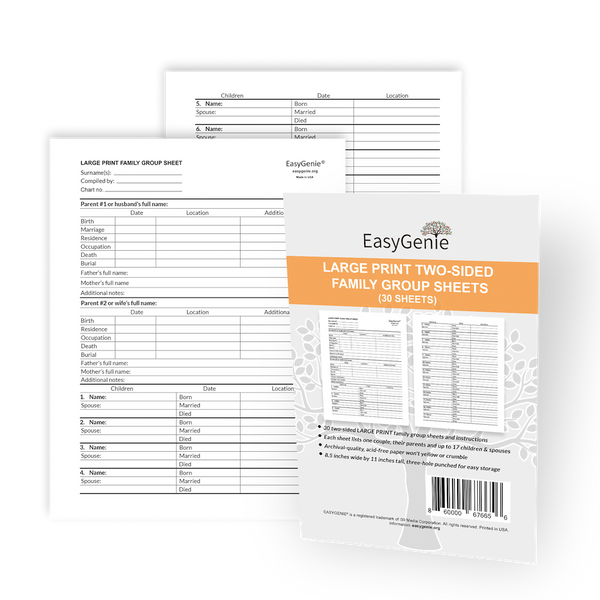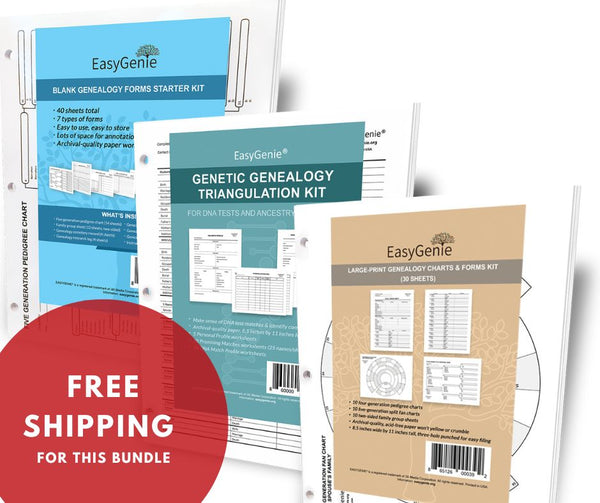
Interview: Devon Noel Lee on writing genealogy books
Ian LamontEasyGenie recently interviewed Devon Noel Lee of Write Your Family History and Family History Fanatics. Her mission: To help people write family histories, including bound genealogy books. As many readers know, EasyGenie believes very strongly in the power of paper to preserve genealogy, so we were very interested in learning best practices for making printed genealogy books and other types of published family histories. Devon shares her advice on YouTube, so be sure to follow the starting points linked below.
EasyGenie: Writing a family history or genealogy book is something many family genealogists know they should do, but never get around to. What are the biggest obstacles?
Devon: While many people would say they do not have enough time, in actuality, we make time for the things that are important to us. However, the obstacles we face are mostly mental. The three biggest ones are:
- Not Knowing What to Write - Writing family history, like genealogy research, begins with records. After you find a record about an ancestor, the first step to writing a story is taking all the details on that record and turning them into sentences and paragraphs. It always begins with a record, as I explain in this video, The Easiest Way to Write Family Histories.
- Not Having A Likely Audience - The next obstacle to writing is feeling like no one wants to read the book. If you write a story, many family members will read it because they love you. But, if you do not have living relatives, there are many potential audiences that you haven't tapped into yet. I share those potential audiences in this video: What's the point of writing a family history if nobody will read it?
- Not Finished Researching - One thing that I have learned is that new information comes to late at a regular clip. If we wait to write before all the research is done, we will never write. However, I have learned that writing as I research can help me process all the details I gather and discover new research questions. In short, writing makes me a better researcher and researching makes me a better writer. Thus, doing both skills together is something each genealogist should consider.

EasyGenie: What advantage do written family histories or genealogy books have over a detailed online tree?
Think for a moment of your own experiences. When you show off a family tree (online, in print, or on a wall), what reception do you receive? If the chart is well done, like some created by Family Chartmasters, Genealogy Wall Charts, or other chart printers, you could have people take an interest. Contrast that with the time you shared an interesting story about an ancestor. Do people become more or less interested?
The advantage of a written family history is the power of preserve family stories into the future in a consumable and approachable way. The key is to write stories in the best format for a specific audience. I discuss this topic further in my blog post What Genealogy Books Should You Publish?

EasyGenie: Years ago I created genealogy books using photo book services, but it was hard as the templates were intended for photos, not text. Are there book publishing platforms today that make it easier to publish family histories?
It depends on what you're trying to publish. If you're trying to create photo books with companies like Mixbook or Shutterfly, you'll experience the same frustration. Their templates are not designed for lengthy family histories.
For self-publishing family historians, you have a variety of options, which I explain in this blog post, Publishing Your Genealogy: From Traditional to Self-Publishing Options.
I have self-published two books and two memoirs (one for myself and one for my husband). It's easier than you think. We formatted our 6x9 in book using Microsoft Word. Then we saved the file as a PDF. We uploaded each to Lulu.com and ordered copies for ourselves. I only had to order the copies I wanted - which at times has been as low as one book. Lulu.com is affordable and easy to use.
In short, you can use any text editing program to write and format your book. Then, depending on the requirements of your publisher, you can publish your book with ease.
Many thanks to Devon for participating in the interview! To learn more about Write Your Family History channel, head on over to YouTube.
